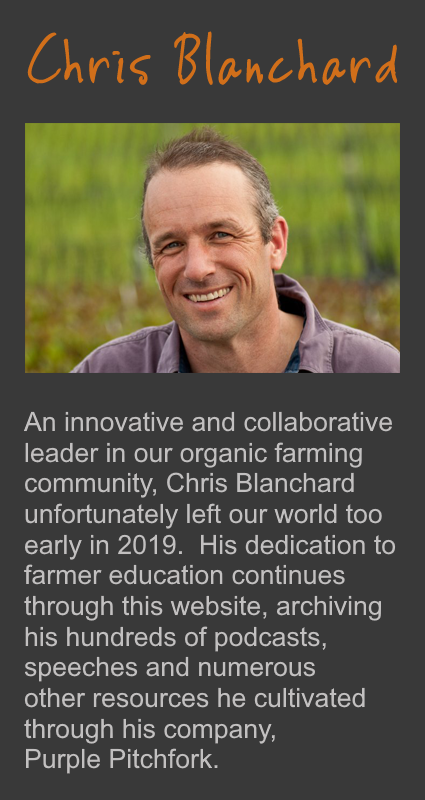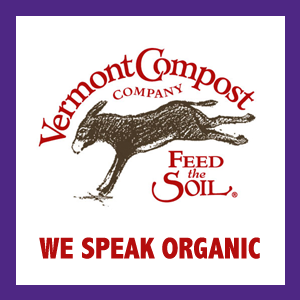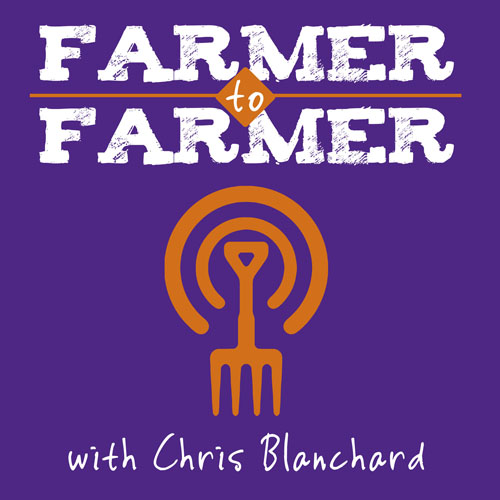In the CSA community and online, much has been made of the growth of box plans that resemble traditional Community Supported Agriculture programs in packaging and marketing, but don’t provide the same retail-level pricing and community support that formed the core of the original CSA concept.
To me, this all comes down to a marketing issue. In favor of a short acronym, we’ve all dropped the Community and Supported aspects of the concept from the every-day language we use to describe this way of marketing vegetables, with the result that CSA has (in the same way that Kleenex now means anything you use to blow your nose) come to imply any delivery of vegetables in a box.
CSA needs a new name. Or maybe it’s an old name that harkens back to some of the original writings on the subject of Community Supported Agriculture, such as Trauger Groh’s Farms of Tomorrow. In any case, it needs to be short and snappy, and it needs to say something about those two core values of community and support.
The new name, and indeed the movement as a whole, will need to find a way to draw the line of who is in and who is out – the lines aren’t as clear as you might think. At one end of the spectrum you’ve got programs that never reference the term CSA and make no representation about actually producing the food, such as Chicagoland’s Irv and Shelly’s Fresh Picks, and farm-based companies like the Pacific Northwest’s Full Circle that have added on to their own production to such a degree that the farm’s own produce doesn’t represent the cornerstone of their distribution program any more.
But you also have farms that supplement their own production from area growers, as well as others that offer add-on programs to supply out-of-region items like fruits and coffee to their members. For some of these farms, the add-on items include an implicit connection to a social-justice movement or even directly to the producer; for others, it’s just a box of good fruit.
The organic movement went through this definition process about 30 years ago, when organic certification began to define who was and who wasn’t organic long before the government got involved. I think it’s time for Community Supported Agriculture to do the same.
To me, this all comes down to a marketing issue. In favor of a short acronym, we’ve all dropped the Community and Supported aspects of the concept from the every-day language we use to describe this way of marketing vegetables, with the result that CSA has (in the same way that Kleenex now means anything you use to blow your nose) come to imply any delivery of vegetables in a box.
CSA needs a new name. Or maybe it’s an old name that harkens back to some of the original writings on the subject of Community Supported Agriculture, such as Trauger Groh’s Farms of Tomorrow. In any case, it needs to be short and snappy, and it needs to say something about those two core values of community and support.
The new name, and indeed the movement as a whole, will need to find a way to draw the line of who is in and who is out – the lines aren’t as clear as you might think. At one end of the spectrum you’ve got programs that never reference the term CSA and make no representation about actually producing the food, such as Chicagoland’s Irv and Shelly’s Fresh Picks, and farm-based companies like the Pacific Northwest’s Full Circle that have added on to their own production to such a degree that the farm’s own produce doesn’t represent the cornerstone of their distribution program any more.
But you also have farms that supplement their own production from area growers, as well as others that offer add-on programs to supply out-of-region items like fruits and coffee to their members. For some of these farms, the add-on items include an implicit connection to a social-justice movement or even directly to the producer; for others, it’s just a box of good fruit.
The organic movement went through this definition process about 30 years ago, when organic certification began to define who was and who wasn’t organic long before the government got involved. I think it’s time for Community Supported Agriculture to do the same.




 RSS Feed
RSS Feed
